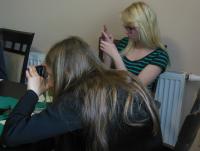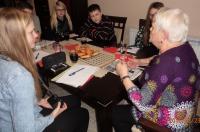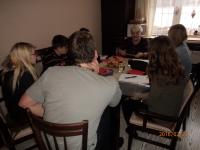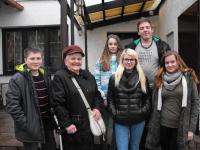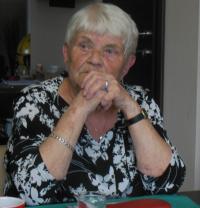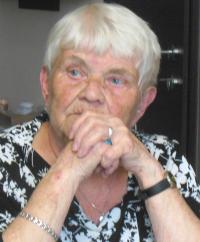Be happy about the small things

Download image
Antonie Robová, née Nejčová, was born on 26th July 1932 in Kralupy nad Vltavou. In March 1945 the town was bombed by the American army. As a little girl Antonie would secretly bring food to partisans during the war. She and her family survived hidden in the basement but many of their friends died during the bombing. At the end of the war Antonie witnessed transportation of Jewish people from concentration camps, as well as the so-called death marches.
